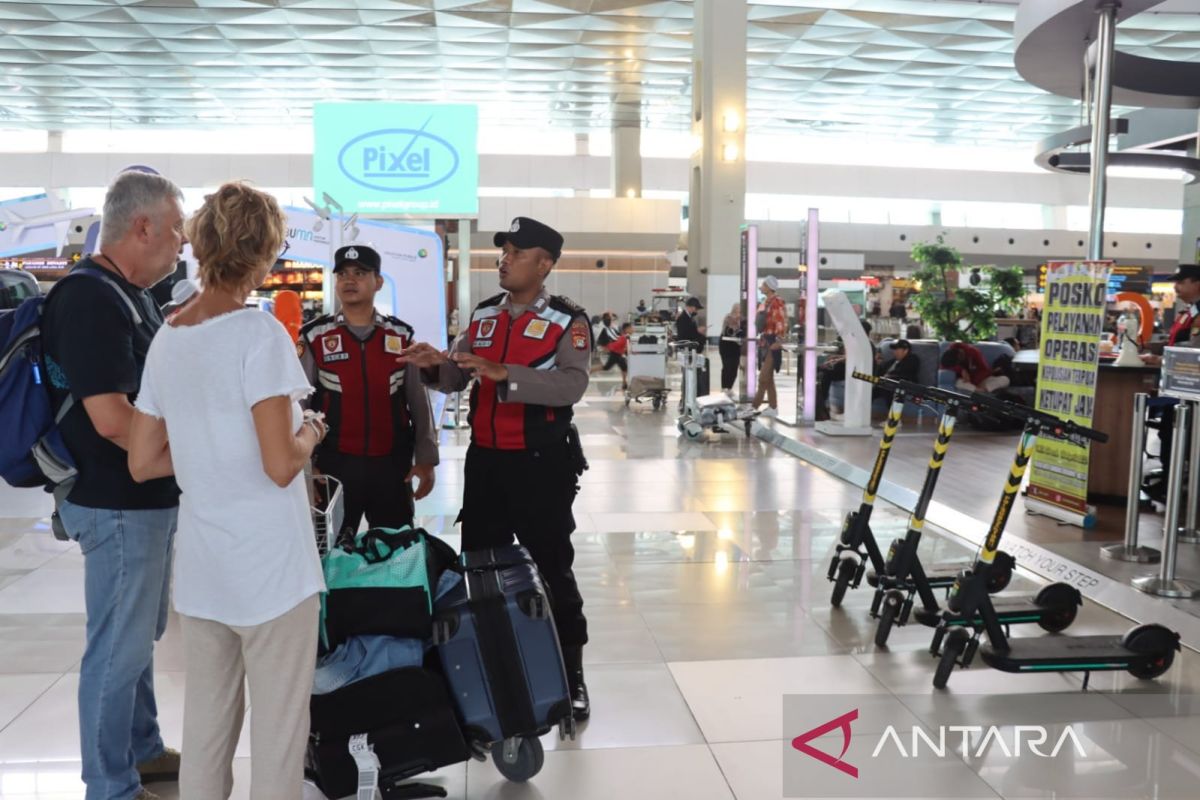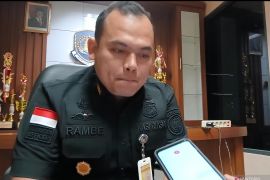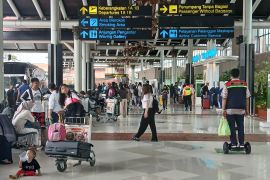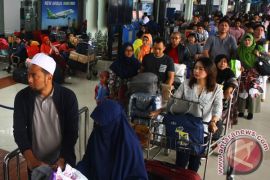"We have implemented proactive steps to prevent the spread of the monkeypox virus at Soekarno-Hatta Airport," Senior Manager of Branch Communication & Legal of Soekarno-Hatta Airport, M. Holik Muardi said here on Sunday.
Currently, there are two thermal scanner units in Terminal 2 and four units in Terminal 3. According to Muardi, these units are strategically placed to ensure that all international passengers undergo body temperature checks before continuing their arrival process.
"These thermal scanners function to detect passengers' body temperature in real-time, as one of the initial efforts to identify symptoms associated with monkeypox," he said.
One of the steps taken when an Mpox suspect is found in the international arrivals area of the airport is to separate passenger who are indicated to have symptoms, from other passengers.
Passenger suspected of being infected with monkeypox will be immediately directed to a temporary isolation room that has been specially prepared at the airport.
"In this isolation room, passenger will undergo further medical examinations by a health team that is always on standby 24 hours, just in case the passenger is confirmed to have symptoms that match monkeypox," he explained.
Soekarno-Hatta Airport has created a special post to increase public awareness and provide direct support in preventing and handling the cases of Mpox.
By prioritizing the health and safety of passengers and airport personnel, he noted, preventive measures have been strengthened and focused on early detection, proper handling and provision of adequate facilities.
"To deal with the threat of the spread of monkeypox, Soekarno-Hatta Airport has taken various collaborative steps with various related agencies," he said.
This collaboration is designed to ensure that every potential case of Mpox can be detected and handled quickly and appropriately.
"We work closely with the Health Quarantine Center (BBKK) and various related parties, ensuring that every passenger entering Indonesia has gone through a comprehensive screening process and in accordance with the established health protocols," Muardi added.
The government has recently mandated that all international travelers entering Indonesia must complete an electronic self-declaration form called the SATUSEHAT Health Pass.
Strict screening measures have been implemented following the discovery of the Clade Ib variant outside Africa, according to M. Syahril, the spokesperson for the Indonesian Ministry of Health (Kemenkes), as reported on the ministry’s website.
In coordination with Kemenkes, the Ministry of Transportation issued a circular on Tuesday (August 27) requiring passengers, both Indonesian and foreign, to complete the SATUSEHAT Health Pass before or during check-in for their departure.
The SATUSEHAT Health Pass for international travelers can be completed via https://sshp.kemkes.go.id, according to information on the Kemenkes website.
The health ministry said that there have been 88 confirmed cases of mpox from 2022 until August 17, 2024.
Of these, 59 cases were found in Jakarta, and the remainder were in several provinces: 13 cases in West Java, nine cases in Banten, three cases in East Java, three cases in Yogyakarta, and one case in the Riau Islands.
Out of these cases, according to the ministry, 87 have been recovered.
Related news: Tourism minister calls for increased Mpox vigilance at Bali Airport
Related news: Indonesia secures 1,600 additional Mpox vaccine doses this week
Translator: Azmi Syamsul Ma'arif, Yashinta Difa
Editor: Tia Mutiasari
Copyright © ANTARA 2024












